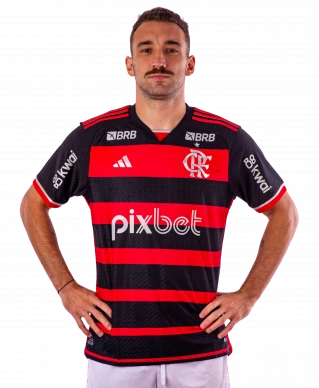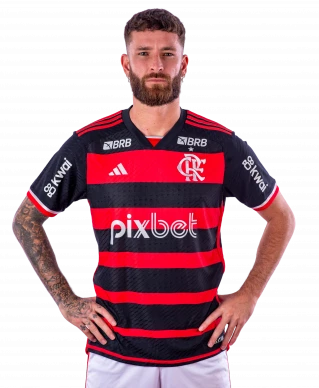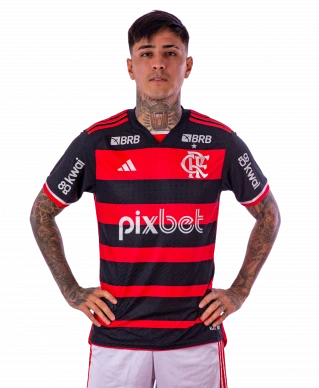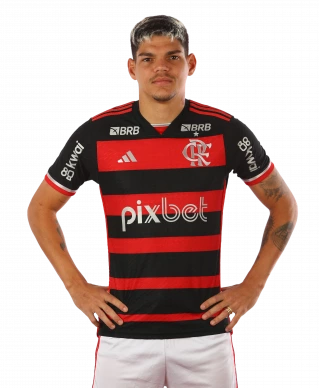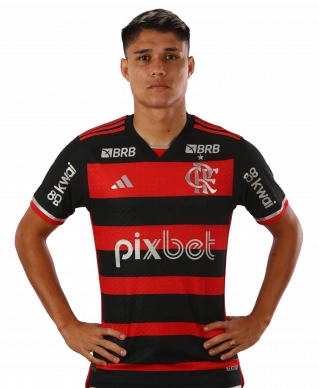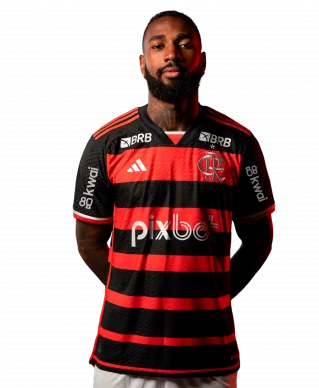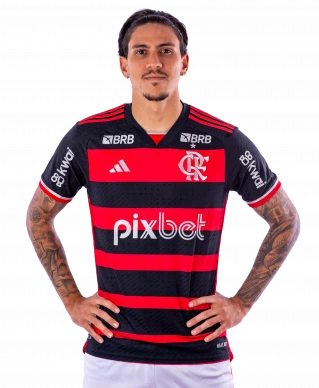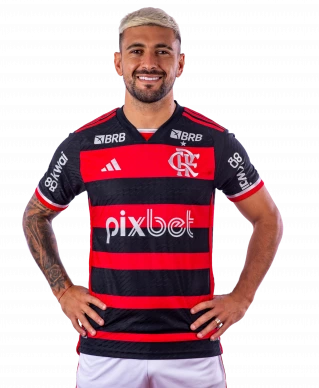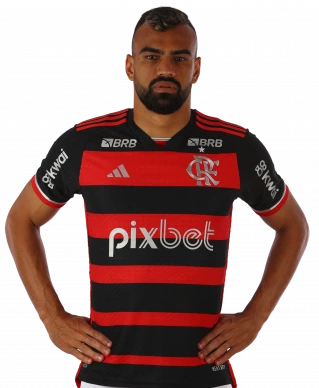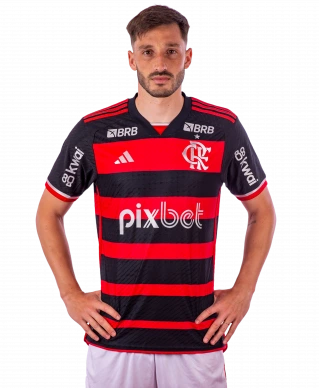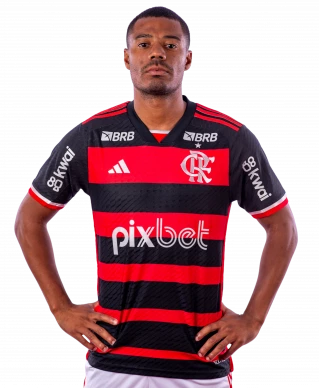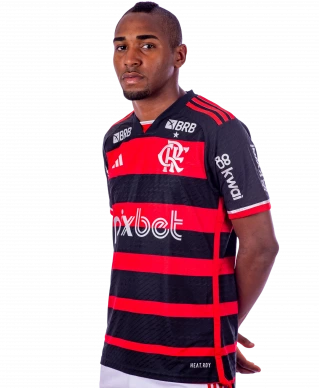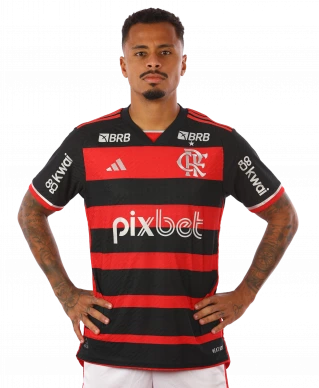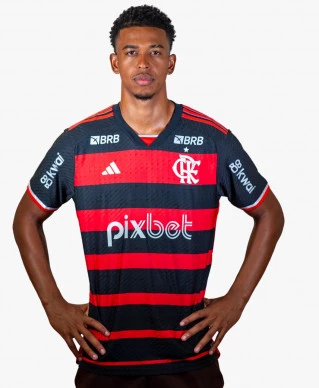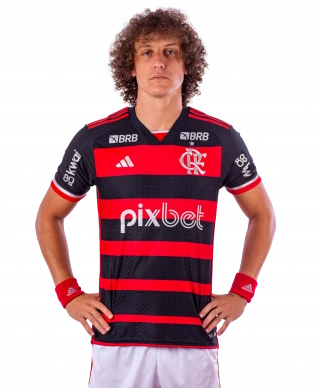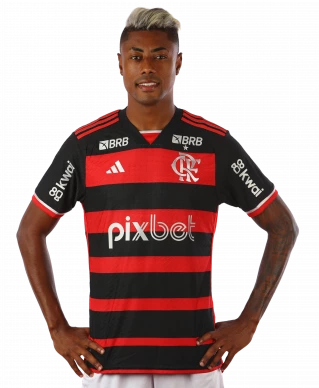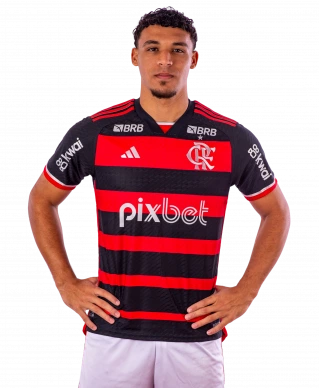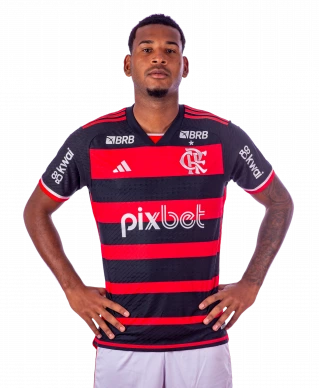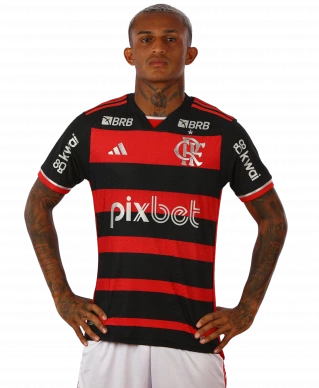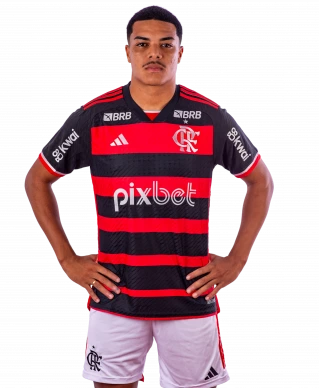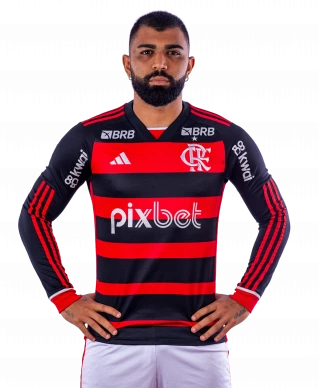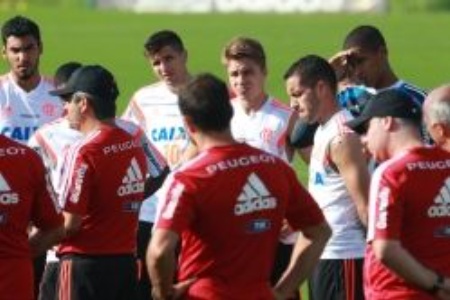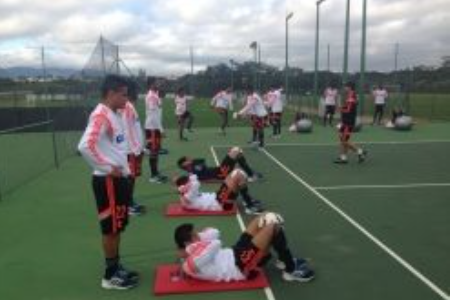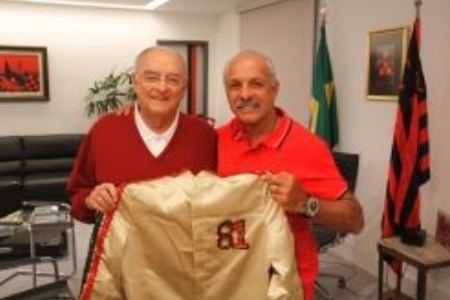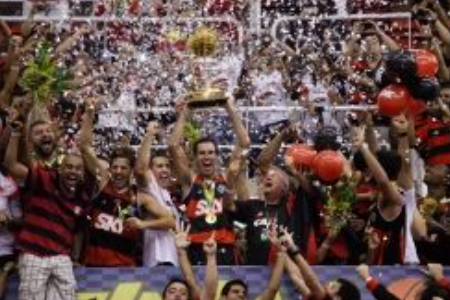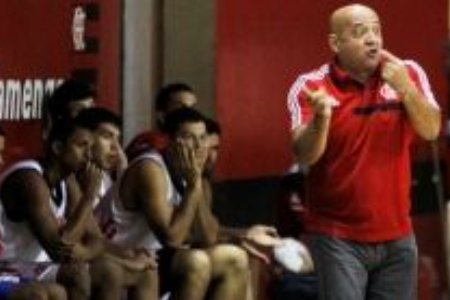1895
Founded in
8
Champions
29
Current Players
Clube de Regatas do Flamengo: A Journey Through History and Glory
Clube de Regatas do Flamengo, often called Flamengo, is not just any football club. With a rich history from 1895, it is one of Brazil’s most iconic sports institutions. Why does Flamengo have such a massive following? It’s simple: the club’s field success and deep roots in Brazilian culture.
Flamengo has won numerous national and international titles, making it a powerhouse in football. Fans are drawn to its legacy of triumphs and the team’s passionate spirit. Whether you’re a lifelong supporter or new to the world of Brazilian football, understanding Flamengo’s journey offers a glimpse into the heart of the sport in Brazil.
History of Clube de Regatas do Flamengo
Flamengo’s journey is a tale of grit, passion, and triumph. From humble beginnings to becoming a football giant, the club has carved a unique niche in sports history. Let’s explore Flamengo’s story, from its formation to its recent successes.
Founding and Early Years
Clube de Regatas do Flamengo was founded on November 17, 1895, by rowers who loved the sea and the sport. Initially, the club’s main focus was rowing, hence the name “Regatas,” which means “regattas” in Portuguese. The founders sought to emphasize community and sports, fostering a sense of unity and purpose among its members.
In the early years, Flamengo’s football team didn’t exist. It wasn’t until 1911 that football was introduced to the club. This marked the beginning of what would become a rich football legacy. The early football team faced many challenges but quickly gained popularity, setting the stage for future growth.
Key Historical Milestones
Flamengo’s history is dotted with significant moments that have shaped its identity and success. Here’s a look at some key milestones:
- First Football Match (1912): Flamengo played its first official football match against Mangueira, winning 16-2. This victory set the tone for the club’s football journey.
- Foundation of the Rio de Janeiro Football League (1915): Flamengo became a founding league member, ensuring its place in competitive football.
- First Campeonato Carioca Title (1927): Winning the Rio de Janeiro state championship established Flamengo as a serious competitor.
- Golden Era (1980s): Under the leadership of players like Zico, Flamengo dominated Brazilian football, winning multiple titles, including the 1981 Copa Libertadores and Intercontinental Cup.
- Club’s Centenary (1995): Celebrating 100 years, Flamengo highlighted its rich history and numerous achievements with events and commemorations.
Recent Achievements
In recent years, Flamengo has continued to build on its historic success, reaffirming its status as a top football club. Some notable achievements include:
- 2019 Double Victory: 2019 Flamengo won the Campeonato Brasileiro Série A and the Copa Libertadores. This double win was a testament to the club’s strength and strategic gameplay.
- Supercopa do Brasil (2020): Flamengo secured the Supercopa do Brasil title, further adding to their list of accolades.
- Continued Dominance: The club’s recent performances in national and international competitions have kept fans excited and hopeful for future triumphs.
Flamengo’s story is not just about football; it’s about resilience, community, and a relentless pursuit of excellence. This rich history sets the stage for understanding why the club has an immense following and enduring legacy.
Achievements and Honors
Flamengo has a storied history filled with numerous achievements and honors. These accolades span national and international competitions, highlighting the club’s dominance in football. Let’s look at their significant accomplishments in a bit more detail.
National Competitions
In Brazilian football, Flamengo stands as a titan. Their success in national leagues and tournaments is a primary reason for their massive fan base.
- Campeonato Brasileiro Série A: Flamengo has won the top-tier Brazilian league several times, showcasing their steady performance. Winning this league is no small feat; it demands consistency and excellence over a season.
- Copa do Brasil: This knockout competition has also seen Flamengo rise to the top multiple times. The tournament requires resilience and strategic play, and Flamengo’s victories underline their capabilities.
- Campeonato Carioca: Dominating their Rio de Janeiro home state, Flamengo has captured this title more than any other club. It reflects their local dominance and their intense rivalry with other Rio-based teams.
International Competitions
Flamengo’s prowess isn’t limited to Brazil; they’ve also made significant marks on the international stage.
- Copa Libertadores: Winning South America’s most prestigious club competition is a highlight. Flamengo’s triumphs in this tournament have brought glory to the club and national pride to Brazil.
- Intercontinental Cup: Flamengo earned the chance to compete globally by winning the Copa Libertadores. Their victory in the Intercontinental Cup established them as one of the best football clubs in the world, underscoring their global impact.
- FIFA Club World Cup: Competing against top clubs from other continents, Flamengo put Brazilian football on the world map. Their performances in this competition further solidified their reputation as a world-class team.
Individual Player Awards
Flamengo’s success also stems from the exceptional talent within the team. Over the years, many Flamengo players have garnered individual accolades for their outstanding performances.
- Ballon d’Or: While traditionally a European-dominated award, Flamengo stars like Zico have been in the conversation, reflecting the club’s international talent.
- South American Player of the Year: Several Flamengo players have won this award, recognizing their impact on the continent’s football scene. It highlights the quality of talent Flamengo nurtures.
- Top Scorers: Flamengo players often emerge as top scorers in national and international competitions. This highlights the club’s offensive strength and ability to produce prolific goal-scorers.
Flamengo’s achievements and honors span team and individual successes, painting a picture of a club that excels on every level. Their legacy is built not only on trophies but also on the remarkable players who have worn the famous red and black jersey.
Famous Players
Flamengo’s history is decorated with players who have donned the red and black jersey and become legends. These stars have massively impacted from the golden eras to modern times. Let’s explore some of the most famous players in Flamengo’s storied history.
Zico
Zico, often called the “White Pelé,” is arguably the most iconic player in Flamengo’s history. An attacking midfielder, Zico’s career at Flamengo spanned from the early 1970s to the late 1980s. His dribbling skills, vision, and incredible goal-scoring ability made him a fan favorite.
- Key Achievements:
- Zico led Flamengo to their first Copa Libertadores title in 1981.
- He helped the team win multiple Campeonato Brasileiro Série A titles.
- His contribution was crucial in Flamengo’s victory in the 1981 Intercontinental Cup.
Adriano
Known as “The Emperor,” Adriano was a powerful and skillful striker who played for Flamengo during various periods, mainly in the early 2000s and again in 2009-2010. His strength, technical skill, and ability to score from seemingly impossible situations endeared him to fans.
- Key Achievements:
- Adriano was pivotal in Flamengo’s 2009 Campeonato Brasileiro Série A win.
- He was the top scorer in the 2009 season with 19 goals.
- Adriano’s physical presence and leadership on the field made him an essential part of the team during his stints.
Modern Era Stars
Flamengo continues to produce and attract top talent in the modern era. Recent stars have carried on the legacy of greats like Zico and Adriano and have brought new glory to the club.
- Gabriel Barbosa (Gabigol): Known for his goal-scoring prowess, Gabigol has been a sensation since joining Flamengo in 2019. His goals were instrumental in Flamengo’s 2019 Copa Libertadores and Campeonato Brasileiro Série A double win.
- Bruno Henrique: His speed and versatility have made Bruno Henrique a standout player. Alongside Gabigol, he was crucial in securing the 2019 double victory.
- Everton Ribeiro: As the playmaker, Ribeiro has been the engine behind many of Flamengo’s recent successes. His vision and passing ability have been vital in orchestrating the team’s offense.
Other Notable Mentions:
- Diego Ribas: His experience and leadership have been invaluable since he joined the club.
- Arrascaeta: This Uruguayan midfielder has shown incredible skill and creativity, contributing significantly to the team’s recent successes.
Flamengo’s legacy is enriched by the players who’ve proudly worn its colors. Each player has left an indelible mark on the club’s history, from the legendary Zico to modern stars like Gabigol and Bruno Henrique. Their contributions have brought silverware excitement and passion to one of Brazil’s most beloved football institutions.
Rivalries and Key Matches
Flamengo’s history isn’t just about victories and trophies; it’s also filled with intense rivalries and unforgettable matches. These games have shaped the club’s identity and fueled the passion of its fans. Let’s dive into some of the most significant rivalries and key matches defining Flamengo’s journey.
Flamengo vs Fluminense (Fla-Flu)
The Fla-Flu derby is one of the most famous football rivalries in Brazil. Flamengo and Fluminense, based in Rio de Janeiro, first faced off in 1912. Since then, their encounters have been filled with drama and excitement.
- Historical Significance: The first-ever Fla-Flu match saw Flamengo winning 3-2, setting the stage for a century of fierce competition. The game often plays out in front of packed stadiums, with fans from both sides creating an electric atmosphere.
- Epic Matches:
- 1941: The Maracanã Clássico: This game is etched in history as one of the most thrilling encounters. With over 70,000 fans in attendance, Flamengo triumphed 5-2, a memorable victory.
- 1995: Centenary Match: Celebrating 100 years, this game ended in a dramatic 3-3 draw. Both teams showed incredible skill and determination, capturing the essence of the rivalry.
- Modern Era: The rivalry continues today, with both teams vying for dominance in the Campeonato Carioca and other competitions. Each Fla-Flu match renews the competitive spirit and passion of the fans.
Flamengo vs Vasco da Gama
Another major rivalry is between Flamengo and Vasco da Gama. Known as “Clássico dos Milhões” (The Millions’ Derby), this rivalry started in the early 20th century and is famous for its intense matches and passionate fanbase.
- Historical Background: The rivalry began in the 1920s, with both clubs battling for supremacy in Rio de Janeiro. Matches are often contentious, with high stakes and immense pressure.
- Key Matches:
- 1974 Rio de Janeiro Championship: One of the most famous encounters, where Flamengo narrowly won 1-0, thanks to a goal by Zico. This match intensified the rivalry and remained a highlight in Flamengo’s history.
- 2001 Campeonato Brasileiro Final: Flamengo defeated Vasco in the finals with a 3-1 aggregate score. This victory was crucial in asserting Flamengo’s dominance in Brazilian football.
- Fan Culture: The rivalry extends beyond the pitch, with fans engaging in friendly banter and sometimes heated exchanges. The atmosphere during these matches is electric, reflecting both fanbases’ deep-seated passion and loyalty.
Memorable Matches
Flamengo’s rich history is filled with matches that have left an indelible mark on the football world. These games are remembered not just for the scores but for the emotions and moments that defined them.
- 1981 Intercontinental Cup: Flamengo vs Liverpool. This match saw Flamengo claim a 3-0 victory against Liverpool, marking their prominence on the global stage. Zico’s remarkable performance was critical to this win; fans still celebrate the match.
- 2019 Copa Libertadores Final: Flamengo vs River Plate. Flamengo scored two late goals to beat River Plate 2-1 in a dramatic turn of events. Gabriel Barbosa, known as Gabigol, became an instant hero, and the match went down as one of the most thrilling finals in the tournament’s history.
- 1980 Campeonato Brasileiro Final: Flamengo vs Atlético Mineiro. This match saw Flamengo win their first national title, making it a landmark moment for the club. The victory was a testament to the team’s hard work and skill, setting the foundation for future successes.
These rivalries and matches offer a glimpse into the pulse of Flamengo’s football culture. Each game is more than just a contest; it’s a chapter in the club’s ongoing saga, filled with passion, pride, and unforgettable moments.
Home Stadium
Flamengo’s home is more than just a stadium; it symbolizes pride and passion. Playing at the Maracanã Stadium, Flamengo’s matches are a spectacle filled with history, emotion, and a unique atmosphere that only this iconic venue can provide.
Maracanã Stadium
The Maracanã Stadium is not just any stadium. Built for the 1950 FIFA World Cup, it is one of the world’s most famous football venues. With an official capacity of over 78,000, it’s one of the largest stadiums in South America. This colossal arena has witnessed countless legendary matches and moments.
Flamengo has called the Maracanã its home for decades. The stadium’s sheer size and historical significance make it the perfect stage for Flamengo’s high-stakes matches. Fans flock to the Maracanã in droves, creating a sea of red and black that supports their team through thick and thin.
Significance and Atmosphere
What sets the Maracanã apart isn’t just its size or history but its unique atmosphere during Flamengo matches. Stepping into the Maracanã is like entering a cauldron of noise and color. The supporters, known as “torcida,” are among the most passionate in the world.
- Electric Atmosphere: The fans’ energy creates a palpable electric atmosphere. Chants, songs, and the rhythmic beating of drums echo throughout the stadium, lifting the team’s spirits and intimidating opponents.
- Cultural Significance: The Maracanã isn’t just a stadium; it’s a cultural landmark. For locals, attending a Flamengo game is a ritual, a shared experience that brings together people from all walks of life. It’s a place where stories are made, and legends are born.
- Historic Moments: Many of Flamengo’s historic victories and unforgettable matches have occurred here. The Maracanã hosted the 1981 Copa Libertadores final, where Flamengo triumphed and solidified their status as a football giant. It was also the stage for the dramatic 2019 Copa Libertadores final against River Plate.
The Maracanã Stadium is a testament to Flamengo’s rich history and enduring legacy. It’s more than just a home; it’s a fortress where countless memories are made, and the Flamengo spirit comes alive. The significance and atmosphere of the Maracanã make it a hallowed ground for football fans worldwide.
Fan Culture and Support
Flamengo’s fan base, often called the “Nação Rubro-Negra” (Red-Black Nation), is known for its passion and loyalty. The fans’ dedication goes beyond just attending matches; they are involved in various aspects of the club’s culture and community.
Supporter Groups
Flamengo boasts several organized supporter groups crucial to the club’s vibrant fan culture. These groups are the heartbeat of the stands, leading chants, organizing events, and fostering a sense of community among fans.
- Raça Rubro-Negra: One of the oldest and most influential supporter groups, Raça Rubro-Negra is known for its unwavering support. They are often seen with massive banners and flags, creating a visually stunning display at matches.
- Torcida Jovem, Fla: This youth-focused group is known for its energetic presence. They bring a youthful vibe to the stands, often leading the most creative and loudest chants.
- Urubuzada: Named after the club’s mascot, Urubuzada is known for its rowdy and passionate members. They are vital in creating an intimidating atmosphere for opponents.
These supporter groups are essential in maintaining the high-energy environment that Flamengo is famous for. Their coordinated efforts make every match feel like a festival of football.
Traditions and Chants
Traditions and chants form a significant part of the Flamengo fan experience. These elements unite fans and create a unique atmosphere that sets Flamengo apart from other clubs.
- Chants: Flamengo’s chants are iconic. Songs like “Eu Sou Flamengo” and “Mengão Querido” echo through the stadium, uniting fans in a chorus of support. Each chant has a history, often passed down through generations of supporters.
- Traditions: One of the most cherished traditions is the “Mosaico,” where fans create large, coordinated displays in the stands using colored cards. These displays often depict the club’s crest, messages of support, or tributes to legendary players.
- Entrance Rituals: As the players walk onto the field, fans often light flares and smoke bombs, creating a spectacular visual effect. This ritual powerfully demonstrates the fans’ passion and sets the tone for the match.
These chants and traditions are about supporting the team and creating a sense of belonging and pride among fans. They make every matchday a special event filled with emotion and community spirit.
Community and Social Impact
Flamengo’s influence extends beyond the football pitch. The club actively participates in community development and social initiatives, positively impacting society.
- Social Programs: Flamengo runs various programs to improve the lives of people in the community. This includes youth football academies, educational initiatives, and health programs. These efforts help nurture talent and provide opportunities for underprivileged youths.
- Charity Events: The club frequently organizes charity matches and events to raise funds for various causes. These events generate financial support and raise awareness about critical social issues.
- Fan Engagement: Flamengo engages with its fans through numerous community activities. From meet-and-greet events with players to fan festivals, these activities foster a closer bond between the club and its supporters.
Flamengo’s commitment to community and social impact underscores the club’s philosophy of being more than just a football team. By giving back to the community, Flamengo reinforces its position as a pillar of society, earning respect and admiration far beyond its on-field achievements.
Management and Financials
Its strong management and financial health match Flamengo’s success on the field. Let’s explore the club’s ownership structure and economic strategies that drive its achievements.
Ownership Structure
Flamengo operates under a unique ownership model that differentiates it from many other football clubs. The club is a member-owned organization, which means it doesn’t have a single owner or a conglomerate backing it. Instead, it is governed by its members—fans and supporters who have a stake in its operations. This democratic approach allows fans to be more involved in decision-making processes.
The club’s executive board, comprising elected officials, makes critical decisions. This board includes the president, vice presidents, and other key figures who oversee various aspects of the club’s operation, from sports performance to financial health.
The elected officials typically serve fixed terms, ensuring accountability and the opportunity for new leadership to come in and implement fresh ideas. This structure promotes transparency and allows the club to stay true to its roots and values.
Financial Health and Sponsorships
Maintaining financial stability is crucial for Flamengo’s continued success. Over the years, the club has implemented several strategies to ensure robust economic health.
Revenue Streams
Flamengo has diversified its revenue streams to ensure financial stability. Here’s how the club generates income:
- Matchday Revenue: Ticket sales from home games at the Maracanã stadium contribute significantly. The stadium’s large capacity often results in high matchday revenue.
- Merchandising: The club’s iconic red and black jerseys and other merchandise are popular among fans. The sale of these items adds to Flamengo’s income.
- Broadcasting Rights: Broadcasting deals for national and international competitions bring substantial revenue.
- Player Transfers: Selling players to other clubs has been a lucrative source of income. Flamengo’s youth academy is known for producing top talent.
Sponsorships and Partnerships
Sponsorships play a crucial role in Flamengo’s financial strategy. The club has secured several high-profile partnerships that boost its income and brand presence.
- Primary Sponsors: Flamengo’s main shirt sponsor is often a large corporation that pays a premium for the prime advertising space. These deals are typically multi-year agreements, providing a steady income stream.
- Official Partners: The club has multiple official partners in various industries, such as banking, healthcare, and technology. These partnerships often include promotional activities and collaborations that benefit both parties.
- Endorsements and Licensing: Flamengo licenses its brand for various products, from video games to apparel. These licensing agreements bring in additional revenue.
Debt Management
Flamengo has made significant strides in managing and reducing its debt. The club’s financial team has implemented effective debt reduction strategies, including renegotiating terms with creditors, reducing operating costs, and improving revenue streams. These efforts have placed Flamengo in a stronger financial position than many other regional clubs.
Investment in Infrastructure
To sustain long-term success, Flamengo has invested in infrastructure, including:
- Training Facilities: Modern training complexes ensure players have the best resources for development.
- Youth Academy: Investing in the youth academy ensures a steady stream of talent that can either strengthen the team or be sold to other clubs for profit.
- Stadium Upgrades: Regular investments in the Maracanã stadium ensure a world-class matchday experience for fans.
Flamengo’s management and financial strategies underscore its commitment to maintaining excellence on and off the field. The club’s structured governance, diverse revenue streams, strategic sponsorships, debt management, and infrastructure investments form the backbone of its continued success.
Conclusion
Flamengo is more than just a football club. It represents the heart and soul of Brazilian football. Its profound cultural impact matches its achievements in the field. From historic wins to a loyal fanbase, Flamengo is a cornerstone of Brazilian sports.
The club’s influence goes beyond Brazil. With international titles, it has carved out a place on the global stage. Flamengo’s success showcases the talent and passion of Brazilian football to the world.
Whether you’re a football fan or not, Flamengo’s story is inspiring. It’s a tale of grit, triumph, and community. This iconic club will continue to shine at home and abroad for years.

BRAZILIAN CHAMPION
2020 , 2019 , 2009 , 91/92 , 82/83 , 81/82 , 79/80
BRAZILIAN CUP
21/22 , 12/13 , 05/06 , 89/90
SUPERCOPA DO BRASIL
2021 , 2020
COPA LIBERTADORES
2022 , 2019 , 1981
COPA MERCOSUR
98/99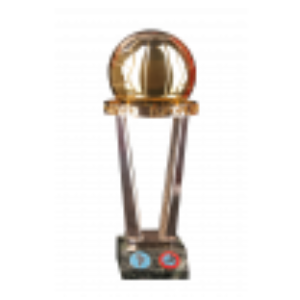
INTERCONTINENTAL CUP
1981
RECOPA SUDAMERICANA
2020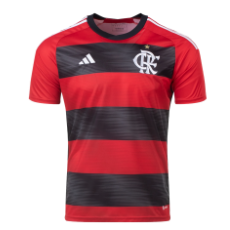
Home Jersey
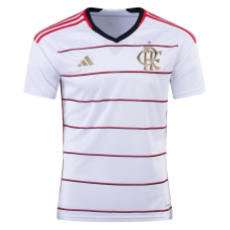
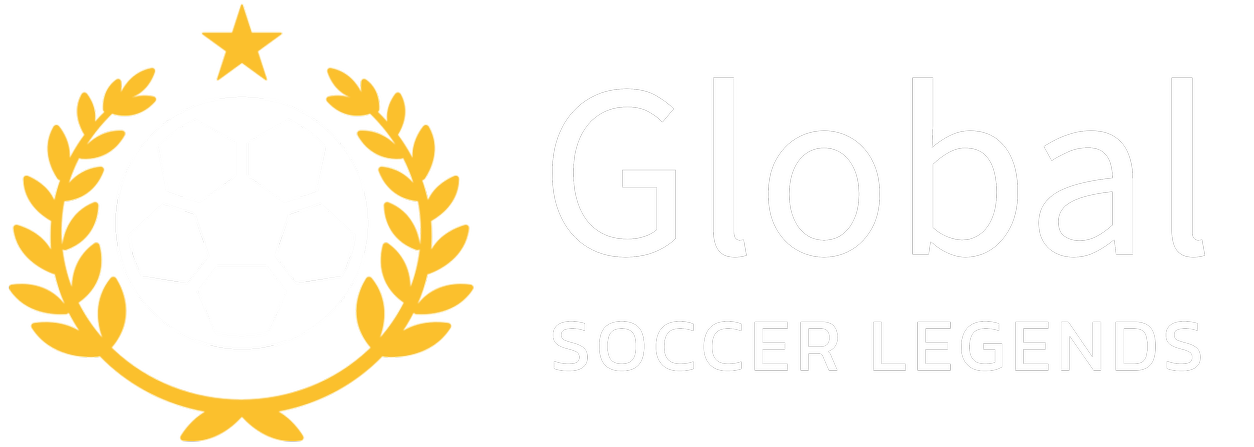

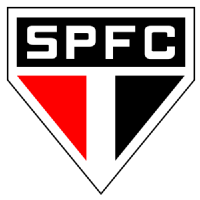 São Paulo Futebol Clube
São Paulo Futebol Clube 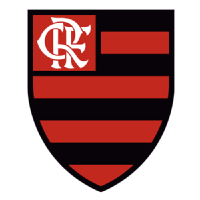 Flamengo
Flamengo 

